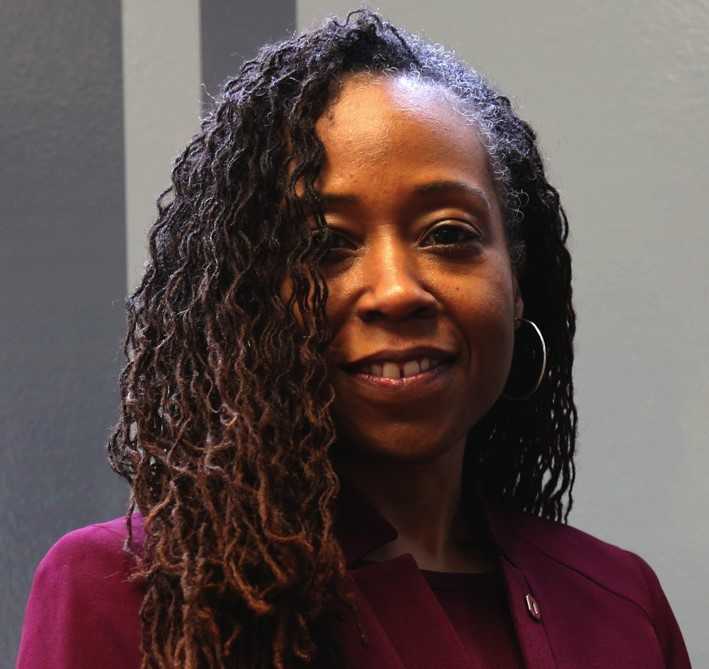Speakers
The Trusting of Cyber-Physical Systems: How AI Influences Human Behavior
People tend to overtrust sophisticated computing devices, especially those powered by AI. As these systems become more fully interactive with humans during the performance of day-to-day activities, ethical considerations in deploying these systems must be more carefully investigated. Bias, for example, has often been encoded in and can manifest itself through AI algorithms, which humans then take guidance from, resulting in the phenomenon of excessive trust. Bias further impacts this potential risk for trust, or overtrust, in that these cyber-physical systems are learning by mimicking our own thinking processes, inheriting our own implicit gender and racial biases, for example. These types of human-AI feedback loops may consequently have a direct impact on the overall quality of the interaction between humans and machines, whether the interaction is in the domains of healthcare, job-placement, or other high-impact life scenarios. In this talk, we will discuss various forms of bias, as embedded in our machines, and possible ways to mitigate its impact on cyber-physical human systems.
Dr. Ayanna Howard is the Dean of Engineering at The Ohio State University and Monte Ahuja Endowed Dean's Chair. Previously she was the Linda J. and Mark C. Smith Endowed Chair in Bioengineering and Chair of the School of Interactive Computing at the Georgia Institute of Technology. In addition, she serves on the Board of Directors for the Partnership on AI, Autodesk, and Motorola Solutions. Dr. Howard’s research encompasses advancements in artificial intelligence (AI), assistive technologies, and robotics, and has resulted in over 275 peer-reviewed publications. She is a Fellow of IEEE, AAAI, AAAS, and the National Academy of Inventors (NAI). She is also the recipient of the Anita Borg Institute Richard Newton Educator ABIE Award, CRA A. Nico Habermann Award, Richard A. Tapia Achievement Award, NSBE Janice Lumpkin Educator of the Year Award, and ACM Athena Lecturer Award. To date, Dr. Howard’s unique accomplishments have been highlighted through a number of other public recognitions, including being recognized as one of the 23 most powerful women engineers in the world by Business Insider and one of the Top 50 U.S. Women in Tech by Forbes. In 2013, she also founded Zyrobotics, which develops STEM educational products to engage children of all abilities. Prior to Georgia Tech, Dr. Howard was at NASA's Jet Propulsion Laboratory where she held the title of Senior Robotics Researcher and Deputy Manager in the Office of the Chief Scientist.
Dr. Ayanna Howard is the Dean of Engineering at The Ohio State University and Monte Ahuja Endowed Dean's Chair. Previously she was the Linda J. and Mark C. Smith Endowed Chair in Bioengineering and Chair of the School of Interactive Computing at the Georgia Institute of Technology. In addition, she serves on the Board of Directors for the Partnership on AI, Autodesk, and Motorola Solutions. Dr. Howard’s research encompasses advancements in artificial intelligence (AI), assistive technologies, and robotics, and has resulted in over 275 peer-reviewed publications. She is a Fellow of IEEE, AAAI, AAAS, and the National Academy of Inventors (NAI). She is also the recipient of the Anita Borg Institute Richard Newton Educator ABIE Award, CRA A. Nico Habermann Award, Richard A. Tapia Achievement Award, NSBE Janice Lumpkin Educator of the Year Award, and ACM Athena Lecturer Award. To date, Dr. Howard’s unique accomplishments have been highlighted through a number of other public recognitions, including being recognized as one of the 23 most powerful women engineers in the world by Business Insider and one of the Top 50 U.S. Women in Tech by Forbes. In 2013, she also founded Zyrobotics, which develops STEM educational products to engage children of all abilities. Prior to Georgia Tech, Dr. Howard was at NASA's Jet Propulsion Laboratory where she held the title of Senior Robotics Researcher and Deputy Manager in the Office of the Chief Scientist.
Strangers Passing: On public interactions between people and autonomous systems
Public spaces are some of the most challenging environments in which autonomous systems operate. Unlike workspaces or controlled environments where humans can be trained to work with autonomous systems, or where systems can be built to specifications based on the users, public environments feature a wide variety of people and events. In these environments, interaction challenges cannot be solved with mere interface or instructional improvements. To operate in these environments, robots need to be savvy about the norms and social signals that people use to jointly negotiate on the road, sidewalk and hallway. More concerningly, these norms and signals vary by location and context. In this talk, I will talk about current research from my lab and beyond on human robot interaction and human-AV interaction which elicits interactive behaviors from people, and discuss attempts to capture regional differences, norm enforcing behaviors. This research informs ways that autonomous systems can be designed and developed to more safely operate in public.
Wendy Ju is an Associate Professor at the Jacobs Technion-Cornell Institute at Cornell Tech and the Technion and in the Information Science field at Cornell University. Her work in the areas of human-robot interaction and automated vehicle interfaces highlights the ways that interactive devices can be designed to be safer, more predictable, and more socially appropriate. Professor Ju has innovated numerous methods for early-stage prototyping of automated systems to understand how people will respond to systems before the systems are built. She has a PhD in Mechanical Engineering from Stanford, and a Master’s in Media Arts and Sciences from MIT.
Wendy Ju is an Associate Professor at the Jacobs Technion-Cornell Institute at Cornell Tech and the Technion and in the Information Science field at Cornell University. Her work in the areas of human-robot interaction and automated vehicle interfaces highlights the ways that interactive devices can be designed to be safer, more predictable, and more socially appropriate. Professor Ju has innovated numerous methods for early-stage prototyping of automated systems to understand how people will respond to systems before the systems are built. She has a PhD in Mechanical Engineering from Stanford, and a Master’s in Media Arts and Sciences from MIT.

